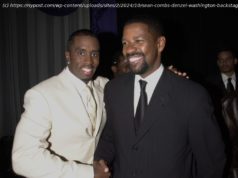Hopefully, For a Little While will bring the American author the UK recognition he deserves.
There is no good reason why Rick Bass is eminently celebrated in America by the likes of Lorrie Moore, Annie Proulx, Joyce Carol Oates and Carl Hiaasen, and yet is seemingly unheard of here in the UK. Perhaps this book of hypnotic short stories, including seven new tales, selected from more than 30 years of writing, will provoke a much-deserved sea change and bring him the recognition that he deserves.
Away from the page, Bass is an environmental activist with renegade credentials. He was arrested in 2013 together with other high-profile demonstrators (including the actress Daryl Hannah) after blocking a main thoroughfare outside the White House. The object of their peaceful gathering was to protest against the contentious, 1,700-mile Keystone XL pipeline (the revival of which Donald Trump recently ordered) . Activism, he says, affects his literary voice.
His terrain is well worn: the epic skies, the wilderness, the wastelands, the animal kingdoms, the haunted lost souls and the violence of the Deep South, Texas and the mountainous west. However, loaded with images that jolt the reader out of complacency, he paints a world hinged between the real and the surreal.
His cast, young and old, are tough survivors, acting out the ancient rituals of love, hunting, paying the bills and skipping school; forever tiptoeing between peace and calamity. Bass has a gift for conveying human consciousness and all its vexing diversions and looping thoughts. From the first story onwards – the strangely sublime “Wild Horses” – a familiar, filmic voice-over voice lodged in my head and didn’ t let up until I had absorbed the entire book.
“It would be easy to say that he lured me into the fields of disrepair like Pan” – so begins the magnificent “Goats” – “calling out with his flute to come join in on the secret chaos of the world: but I already had my own disrepair within, and my own hungers, and I needed no flute call, no urging.” It could be Sissy Spacek in Badlands, or any other poetically persuasive narrator with a sad Southern twang, guiding the reader through these ballad-like myths, sung from the heart of the land.
In the quietly compelling “Swans” the unnamed narrator describes a devoted husband’s physical and mental disintegration. The day-to-day grind of his prideful toil, and his circular thoughts, are both his character and his undoing.
“Field Events” is an alternative family fable centred around Bass’s most extraordinary creation: the bearded Homeric man-mountain AC, who is also equal parts Lennie Small in Of Mice and Men and the Beast from Beauty and the Beast. First seen swimming stark naked in a river, dragging a canoe behind him by a rope clamped between his teeth, he is soon partly adopted by two brothers, obsessed with their own physicality, who train him to be a discus thrower.
Eventually, drawing on his superhero powers and his dedication to serve the boys’ appetites for sporting immortality, he launches the mythical object halfway around the circumference of the Earth, pleasing not only the brothers but their elder sister, too – the diminutive Lory, with her “quick, high laugh not unlike the outburst of a loon” – with whom he has fallen deeply in love.
Certain ancient stories, ancient acts and tasks are played out repeatedly in Bass’s world, but not in the doom of human intention. Unlike Cormac McCarthy, to whom he has previously been compared (unfairly, in my eyes) , he is not committed to pessimism – there is obvious despair, but also hope in all of his writing. Nor does he “omit half the human race from serious scrutiny”, as the critic James Wood once commented, speaking of McCarthy’s unforgivingly macho world-view.
He confronts female characters with unshrinking sensitivity and none more so than Jyl, who first appears as a teenager in “Her First Elk”, hunting for food in the wilderness after her father’s recent bereavement. She later returns in the 42 heartbreaking pages that make up “The Lives of Rocks” as a victim of the ruinous laws of cancer; her intestines now “scalded, cauterised as if by volcanic flow”. Fulfilling all of Bass’s elemental themes, the denouement of her tale is so devastatingly credible that you could be reading about the final days of your own existence.
What a rare find: a page-turner so generously crafted that, rather than turn the pages, you just want to sit and marvel.
For a Little While
Rick Bass Pushkin Press, 480pp, £20
On Thursday night, deep in the bowls of Tate Modern’s turbine hall, London Mayor Sadiq Khan renewed his promise to make the capital a world leader in clean energy and air. Yet his focus was as much on people as power plants – in particular, the need for local authorities to lead where central governments will not.
Khan was there to introduce the screening of a new documentary, From the Ashes, about the demise of the American coal industry. As he noted, Britain continues to battle against the legacy of fossil fuels: “In London today we burn very little coal but we are facing new air pollution challenges brought about for different reasons.”
At a time when the world’s leaders are struggling to keep international agreements on climate change afloat, what can mayors do? Khan has pledged to buy only hybrid and zero-emissions buses from next year, and is working towards London becoming a zero carbon city.
Khan has, of course, also gained heroic status for being a bête noire of climate-change-denier-in-chief Donald Trump. On the US president’s withdrawal from the Paris Agreement, Khan quipped: “If only he had withdrawn from Twitter.” He had more favourable things to say about the former mayor of New York and climate change activist Michael Bloomberg, who Khan said hailed from “the second greatest city in the world.”
Yet behind his humour was a serious point. Local authorities are having to pick up where both countries’ central governments are leaving a void – in improving our air and supporting renewable technology and jobs. Most concerning of all, perhaps, is the way that interest groups representing business are slashing away at the regulations which protect public health, and claiming it as a virtue.
In the UK, documents leaked to Greenpeace’s energy desk show that a government-backed initiative considered proposals for reducing EU rules on fire-safety on the very day of the Grenfell Tower fire. The director of this Red Tape Initiative, Nick Tyrone, told the Guardian that these proposals were rejected. Yet government attempts to water down other EU regulations, such as the energy efficiency directive, still stand.
In America, this blame-game is even more highly charged. Republicans have sworn to replace what they describe as Obama’s “war on coal” with a war on regulation. “I am taking historic steps to lift the restrictions on American energy, to reverse government intrusion, and to cancel job-killing regulations, ” Trump announced in March.
Home
United States
USA — Music Wilderness and wastelands in Rick Bass's hypnotic short stories The rise of...






